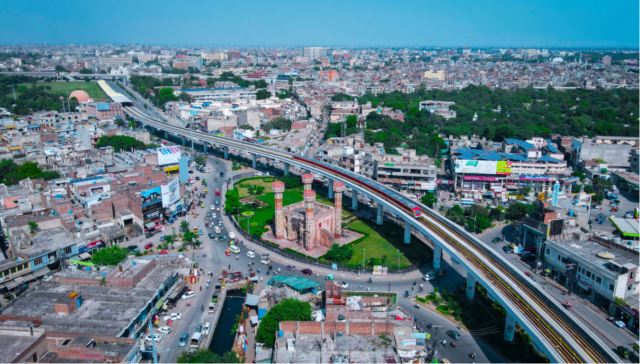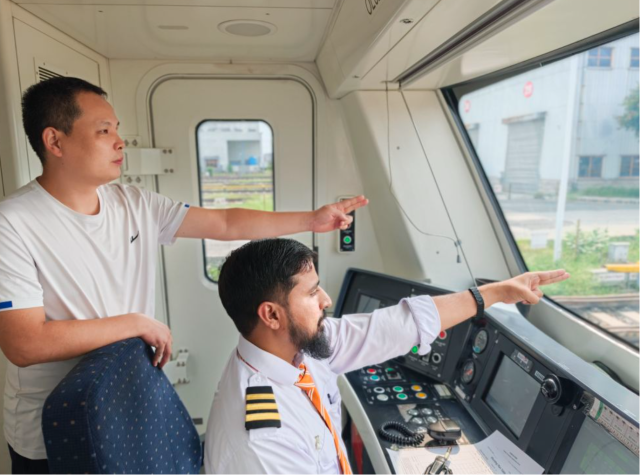Guangzhou Metro Group has successfully operated and managed Pakistan's first metro line in Lahore for five years, achieving a perfect safety record with zero accidents and transporting over 260 million passengers since its launch in October 2020. The Orange Line (Lahore Metro) project in Punjab Province has maintained a 99.9% on-time performance and schedule adherence rate.

(Photo: Guangzhou Metro Group)
Initiated in September 2015 under the Belt and Road Initiative proposed by China and the China-Pakistan Economic Corridor framework, the Lahore Orange Line was designed and constructed using Chinese standards and technology. A joint venture comprising Guangzhou Metro, China North Industries Group (Norinco), and Pakistan's Daewoo Express oversees its operations. The line connects key urban areas, reducing travel time from 2.5 hours by car to just 45 minutes by metro.
With an affordable minimum fare of 25 Pakistani rupees (approximately $0.09), the metro has become a preferred mode of transport for Lahore residents. Daily passenger numbers have surged from under 70,000 in 2021 to 210,000 currently.

(Photo: Guangzhou Metro Group)
Guangzhou Metro emphasized knowledge transfer and local capacity building. The team issued 126 operational regulations and standards, training Pakistan's first modern rail transit professionals. Despite pandemic challenges in early 2020, Chinese instructors conducted intensive hands-on sessions for over 100 core Pakistani staff members, ensuring operational readiness. Today, the workforce is 98% localized, with more than 1,000 Pakistani employees. Eight staff members received "Outstanding Pakistani Employee in CPEC Projects" honors.
The project has catalyzed broader employment, adding over 1,000 jobs in material supply and logistics and another 1,000 in adjacent sectors like food and tourism. Commercial development around the 26 stations has directly created nearly 1,400 jobs and indirectly supported tens of thousands more. Additionally, partnerships with the Education & Vocational Training Authority (TEVTA) in Punjab and universities aim to nurture future rail talent.
Author | Feng Huiting
Editor | Liu Lingzhi, James Campion, Shen He






